Xi replies to letter from steelworkers in Serbia
Xi replies to letter from steelworkers in Serbia's Smederevo.
Xi replies to letter from steelworkers in Serbia's Smederevo.
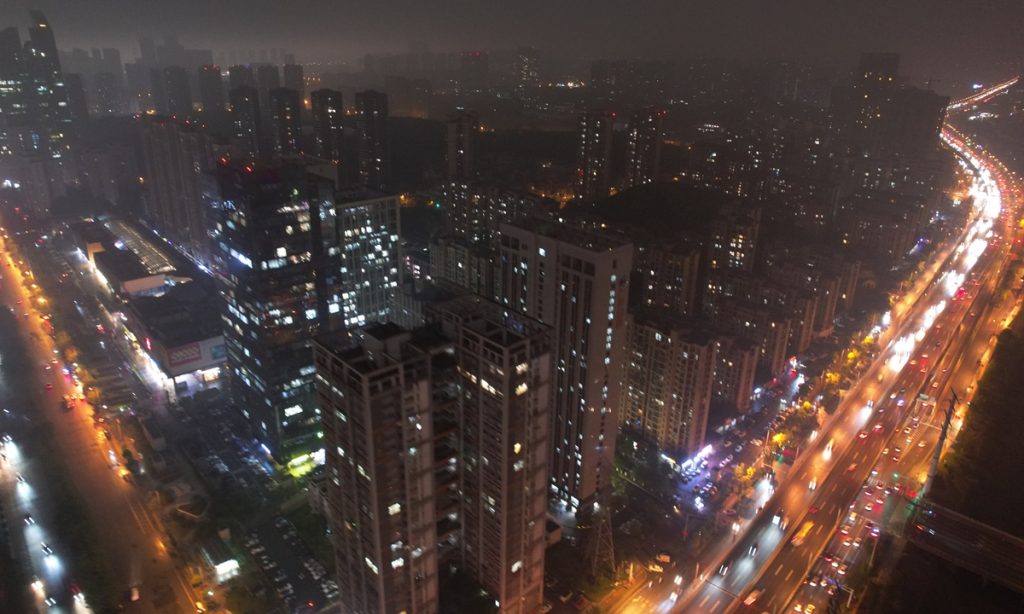
Three provinces - Central China's Hubei, Hunan and East China's Jiangxi - are expected to experience heavy flooding during this year's flood season and are key flood control areas in the middle and lower reaches of the Yangtze River, according to State Flood Control and Drought Relief Headquarters.
As a response measure to recent heavy downpours, the command center led an on-site inspection team to examine local flood-relief efforts. "The three provinces' flood control and drought relief system still have some weak links, flood control and drought relief situation remains complicated and severe," according to the team.
Led by Vice Minister of Water Resources Chen Min, the team visited key sections of the Yangtze River and its important tributaries in Hubei, Hunan, and Jiangxi between April 23 and 27.
The team also examined local flood preparation at reservoirs, ongoing river-related projects, hydrological monitoring stations, pre-flood preparations in flood-prone areas, and readiness in flood storage and detention areas, according to a statement released by Ministry of Emergency Management on Monday.
Additionally, in an effort to monitor local governments' efforts and responsibilities in flood-relief, including whether hidden risks in flood season are plugged and readiness in stockpiling of flood prevention materials, the headquarters dispatched covert expert teams.
Amidst a recent wave of heavy downpours in central and southern part of China, Guangdong Province railway authorities decided to suspend the operation of 62 trains on Beijing-Guangzhou line from Monday to Wednesday, several high-speed train services will also experience delays as well.
The National Meteorological Center (NMC) continued to issue yellow warnings for heavy rain and severe convection weather on Monday morning.
It is expected that from 14:00 on Monday to 14:00 on Tuesday, there will be heavy rain in central and northern Chongqing, eastern Guizhou, most of regions south of the Yangtze River, central and northern South China, the NMC said.
Among them, there will be heavy rain between 100 and 200 millimeters in southern Hunan, central Jiangxi, northwestern Fujian, northeastern Guangxi and northern Guangdong.
During the period, the NMC said that heavy rainfall would sweep central and northern parts of Hunan, including Changsha, and many parts of Hunan would encounter strong convection weather. In Changsha, capital city of Hunan, a wave of wind and rain swept many parts of the city Monday noon, with visibility decreased significantly, as if night had fallen.
Parts of central and southern Hunan, Jiangxi, southwestern Fujian, central and eastern Guizhou, northeastern Guangxi, and central-northern Guangdong are expected to experience thunderstorms with fresh gale or above level, or hail. In some areas, it will experience whole gale or storm.
In Guangdong, according to the monitoring and forecast of meteorological and hydrological departments, heavy rainfall will continue in the province in the next few days. Local departments also warned of subsequent geological disasters.
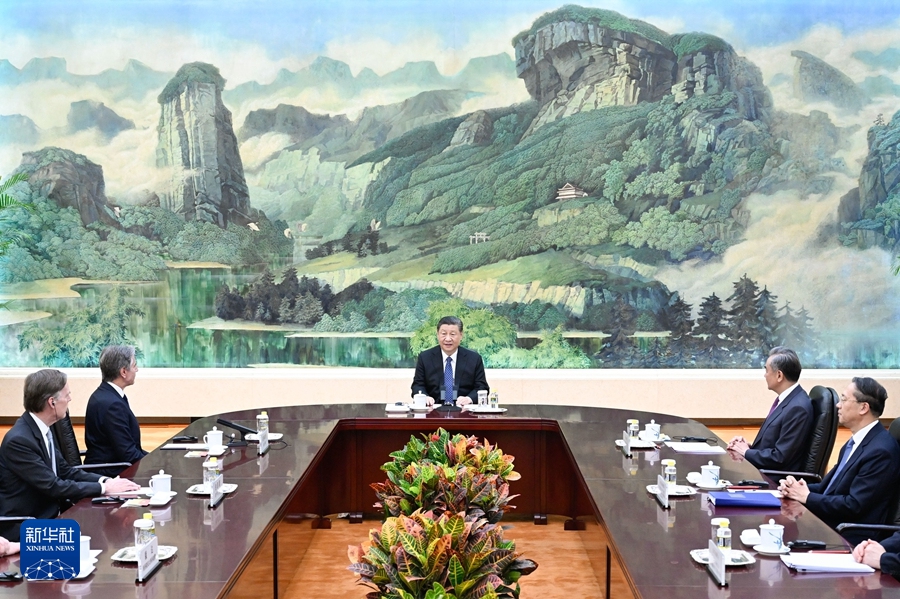
Chinese President Xi Jinping met with visiting US Secretary of State Antony Blinken on Friday in Beijing. Xi said China is willing to cooperate with the US, but cooperation should be a two-way street.
China is happy to see a confident, open, prosperous and thriving US, and hopes the US can also look at China's development in a positive light, Xi said.
"This is a fundamental issue that must be addressed, just like the first button of a shirt that must be put right, in order for the China-US relationship to truly stabilize, improve and move forward," Xi said.
China is willing to cooperate with the US, but cooperation should be a two-way street, Xi noted. "China is not afraid of competition, but competition should be about common progress, not a zero-sum game."
Xi said China is committed to non-alignment, and the US should not form small circles, adding that both sides can have their own friends and partners and should refrain from targeting, opposing or damaging each other.
The diplomatic teams of the two sides also reached five points of consensus on Friday including to maintain high-level exchange and contact at all levels, continue military exchanges and further advance cooperation between China and the US in drug prohibition, climate change, and artificial intelligence.
Some Chinese experts said President Xi's meeting with Blinken can be described as a top-level reception, and the US should realize the inaccuracies, biases, and misconceptions prevalent in America's foreign policy toward China.
This also helps the West to view China more accurately and assists China in gaining a more accurate understanding of US policy toward China and its overall foreign policy, experts said.
For a certain period of time, China has been concerned with the US' approach of "saying nice things while continuing harmful actions," Diao Daming, a professor at the Renmin University of China in Beijing, told the Global Times on Friday.
The US should adhere to its words with actions, ensuring promises lead to results, and not say one thing while doing another, and the trust should be the foundation to protect mutual interests and foster the development of the bilateral relations, Diao said.
During the meeting, Blinken said during his visit, he found that Americans from various sectors in China also hoped to see an improvement in bilateral relations.
The US is not seeking a "new Cold War," does not aim to change China's system, does not seek to contain China's development, and does not intend to oppose China through alliances, nor does it intend to enter into conflict with China, the US diplomat said.
The US adheres to the one-China policy and hopes to maintain communication with China, seriously implement the San Francisco consensus reached between the two leaders, seek further cooperation, avoid misunderstandings and miscalculations, responsibly manage differences, and promote stable development in the bilateral relations, Blinken said during the meeting, according to a readout released by China's Foreign Ministry.
The latest communication can also be described as a process of mutual reassurance, Li Haidong, a professor from the China Foreign Affairs University, told the Global Times on Friday.
"In the new environment, China and the US need to ensure the establishment of a stable, coordinated, mutually beneficial, equal, and cooperative relationship. Both sides have this willingness, and our actions are very clear, but the US has not kept pace," the expert said.
Therefore, we emphasize that this reassurance process should be pragmatically advanced, enabling China-US relations to withstand various turbulences and endure the impacts of international situations, which is also very important, Li added.
Although the consensus between the two sides on effectively managing their relationship seems to have been largely reached throughout the latest high-level interactions between China and the US, some experts are concerned whether the US can guarantee that it will effectively manage differences and expanding cooperation through action, especially when Biden are currently in the midst of elections.
"If the US is unable to follow the consensus and fulfill its promises, and even further seeks to contain China due to election politics, encircle China, tarnish China's image, and interfere in China's internal affairs, it is very likely to have a negative impact on the future trajectory of China-US relations," Diao said.
The US' negative moves, such as arms sales to Taiwan, the attempted ban of TikTok, and the smear campaign targeting China's human rights and governance in Xinjiang, have been ongoing. Therefore, if the relationship between the two sides is to overcome uncertainty, the main source of uncertainty still lies with the US, Li said.
The overall trend in the bilateral relations this year may also be stable, but there are significant risks. These risks primarily stem from the strong domestic political constraints on the White House in handling issues related to China policy, the expert noted.
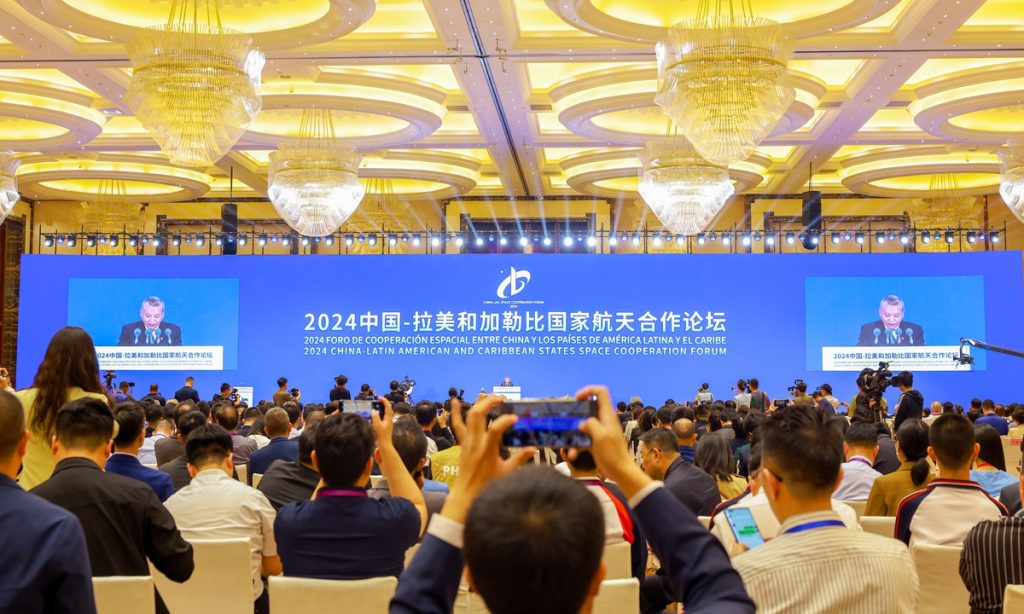
Chinese President Xi Jinping, in a congratulatory letter to the first China-Latin American and Caribbean States Space Cooperation Forum on Wednesday, highlighted that China is ready to work with Latin American and Caribbean countries to build a high-level space cooperation partnership, promote space technology to better benefit both peoples, and continue to promote the building of a community of China and the Latin American and Caribbean countries with a shared future.
The event, co-hosted by the China National Space Administration (CNSA) and Hubei provincial government, took place in Wuhan, Hubei Province on Wednesday. The forum holds great significance in inspiring space scientific innovation, deepening international space cooperation, and showcasing the high level of political trust between China and the Latin American, Caribbean countries.
Noting that this year marks the 10th anniversary of the establishment of the China-CELAC (Community of Latin American and Caribbean States) Forum jointly announced by the leaders of the two sides, Xi said that China and Latin American and Caribbean countries have seen prosperous development over the past decade in their cooperation in various fields within the framework of the China-CELAC Forum to usher in a new era featuring equality, mutual benefit, innovation, openness and tangible benefits for the people, the Xinhua News Agency reported.
China is ready to work with Latin American and Caribbean countries to build a high-level space cooperation partnership, promote space technology to better benefit both peoples, and continue to promote the building of a community of China and Latin American and Caribbean countries with a shared future, Xi said.
Only with high-level political trust can the two sides carry out cooperation in the space domain, as it involves large amount sensitive areas in national defense technology, Pan Deng, director of the Latin American and Caribbean Region Law Center of the China University of Political Science and Law, told the Global Times on Wednesday.
Pan said that China has mastered a full range of mature space technology, from launching spacecraft, satellite in-orbit operations to applications on the ground, while countries in the Latin America and Caribbean region have the unique geographical advantage of their location in the Earth's western and southern hemisphere, which is crucial for monitoring and tracking space activities as well as their growing need for space power building such as launching commercial satellites.
Therefore, cooperation between China and Latin America in the field of space not only helps enhance the technological innovation capabilities of both sides but also promotes social and economic development. Such cooperation, based on high-level political trust, commercial collaboration, and equal partnership, holds significant and far-reaching implications for enhancing China-Latin America relations, upgrading cooperation, fostering innovative development, and promoting building of a community of China and Latin American and Caribbean countries with a shared future, he said.
Xi, in the letter, also said that China and Latin American and Caribbean countries have yielded fruitful results in space cooperation in recent years, including new progress in the fields of remote sensing satellites, communication satellites and the deep space station network, which has played an important role in promoting scientific and technological progress, strengthening regional connectivity and improving people's well-being.
Working together for over three decades, China and Brazil have developed six satellites under the China-Brazil Earth Resources Satellite program (CBERS) so far, with the first successful launch in 1999. China helped launch Earth-observing satellites for Venezuela over the years, and helped Bolivia launch the country's first telecom satellite in 2013.
Capacity building for all
Wednesday marked the 2024 Space Day of China with delegates from over 50 countries' aerospace agencies, international organizations, foreign embassies and consulates in China, and research institutions attending the main event in Wuhan.
China designated April 24 as the Space Day of China in 2016 to mark the launch of its first space satellite "Dongfanghong-1" to space on April 24, 1970. According to statistics obtained by the Global Times from the organizers, a series of nearly 500 space-themed activities is being held by relevant departments, universities and associations across the country on April 24 this year.
China revealed on Wednesday more details of international cooperation in its lunar probe programs.
The International Lunar Research Station (ILRS,) a lunar program currently led by the CNSA and Russia's Roscosmos, has added Nicaragua, the Asia-Pacific Space Cooperation Organization (APSCO), and the Arab Union for Astronomy and Space Science as collaborating countries and organizations.
The CNSA announced Wednesday that China will cooperate with these three parties in various aspects such as engineering implementation, operation and application of the ILRS program. According to the CNSA's ILRS Partnership Guidelines, the ILRS aims for peaceful use, equality and mutual benefit, and common development.
Through joint construction with multiple countries, the ILRS will establish a comprehensive scientific experiment facility on the lunar surface and in lunar orbit, capable of long-term autonomous operation, short-term human involvement, with expandability and maintainability, the Global Times learned from the CNSA on Wednesday.
Aisha Jagirani, director general of the Department of External Relations and Legal Affairs at APSCO, told the Global Times on Wednesday that China's space program is quite impressive compared with other countries that have been working in the development of the technology for so many years. China, in a small time frame period, has done a lot, and most of the work is indigenous and totally done inside China. That is incredible, Jagirani said.
Commenting on APSCO's official joining of the ILRS program, Jagirani hailed that China now brings opportunities to other countries in the Asia-Pacific region, particularly developing countries that do not have much experience in the kind of technology or that cannot work independently.
"So through the platform, the countries have the opportunity to learn about space exploration, what research is involved, what technicalities are involved. We [APSCO] have an agreement with China on the ILRS and that provides an opportunity to the member states including small emerging countries to learn about the dynamics of a space exploration.
"That is something extremely impressive. These kind of opportunities cannot be found anywhere else," she said.
Jagirani elaborated that "the basic idea of joining the ILRS is capacity building, because we understand that not all countries in the Asia-Pacific region have ambitions to send [a] man on the moon, nor maybe have ambition or that much financial capability available to do moon exploration. But through this platform of ILRS, member states could have the capacity building opportunity, and they're working together to get involved in the work to find out how the whole program is being developed, what research areas are available, when the lunar samples will be brought back to Earth, and how these samples are being researched.
"So it's a great opportunity to focus on training, education and capacity building of the member state so that in future, when they aim to go for space exploration, they already have experience accordingly," she said.
China also announced on Wednesday the Chang'e-7 mission is scheduled to launch around 2026, aiming to survey the lunar south pole's surface environment, lunar soil water ice, and volatile components. It will conduct high-precision exploration and research on lunar topography, composition, and structure.
China's Chang'e-7 mission has selected six international payloads to carry onboard, based on scientific objectives and engineering feasibility, from seven countries and international agencies including Egypt/Bahrain, Italy, Russia, Switzerland, Thailand and the International Lunar Observatory Association.
The Chang'e-7 lander will carry a laser retroreflector array developed by the National Institute for Nuclear Physics in Italy's Frascati National Laboratory to support high-precision measurements on the lunar surface and orbit navigation for orbiters, a lunar dust and electric field detector developed by the Russian Space Research Institute to study the lunar exosphere's dust and plasma environment near the lunar surface, and a lunar astronomical observation telescope developed by the International Lunar Observatory Association to conduct lunar-based observations of the Milky Way, Earth, and the panoramic sky.
The orbiter will carry a lunar material hyperspectral imager jointly developed by the Egyptian Space Agency and the Bahrain National Space Science Agency for analyzing and identifying lunar material and environment, a dual-channel Earth radiation spectrometer developed by the Davos Physical Meteorological Observatory in Switzerland (World Radiation Center) and Shenzhen University for monitoring changes in the Earth's climate system radiation balance from the moon for the first time, and a space weather global monitoring sensor developed by the Ministry of Higher Education, Science, Research, and Innovation of Thailand and the National Astronomical Research Institute of Thailand for early warnings of disturbances caused by solar storms and cosmic radiation.
Xi exchanges congratulations with Gabonese Transitional President Nguema over 50th anniversary of diplomatic ties
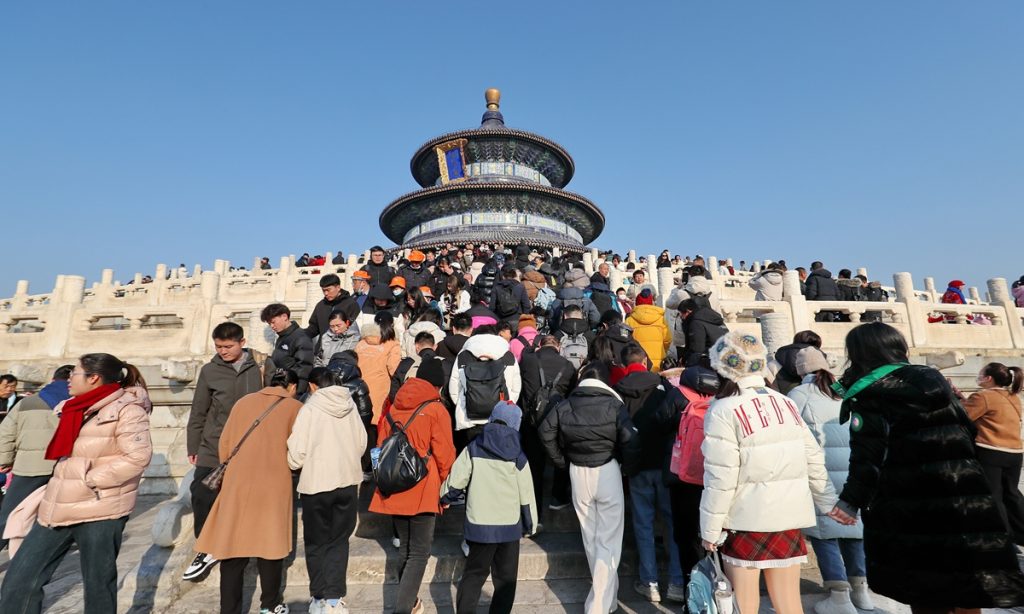
China is expected to experience a surge in outbound tourism during the upcoming May Day holidays, as data from major online travel agencies show a rise in tour bookings. Experts said that the growth can be attributed to factors such as visa-free policies and rising demand for travel.
The travel popularity for the upcoming May Day holidays is steadily increasing compared to 2023, with a more significant growth in outbound and inbound travel bookings. Unlike the short-distance trips during the Qingming Festival, medium and long-distance travel will be the focus during the May Day holidays, according to a report sent to the Global Times by online travel agency Trip.com Group.
According to the report, the search popularity for domestic hotels and flights has slightly increased compared to 2023, while the search popularity for outbound flights has significantly increased by 56 percent year-on-year.
Based on the travel agencies' data, the tour bookings' surge can be credited to various factors such as enhanced people-to-people exchanges between nations, the implementation of visa-free policies, a surge in demand for outbound travel, as well as the ongoing enhancement of transportation and destination facilities, Wu Liyun, a professor of China Academy of Culture and Tourism of Beijing International Studies University, told the Global Times on Wednesday.
Wu said that thanks to the facilitation of visas and the increase in aviation capacity, the Chinese inbound and outbound tourism market is expected to experience rapid growth in 2024, driving the global tourism market to recover. The China Tourism Academy predicted in February that the number of outbound travels could reach 130 million in 2024.
In terms of outbound tourism, popular destinations include Japan, Thailand, South Korea, Malaysia, Singapore, the US and Indonesia. Meanwhile, the travel bookings to countries and regions along the Belt and Road Initiative such as Saudi Arabia and Qatar have seen a higher year-on-year growth rate, said the Trip.com report.
Also, the international cruise packages departing from Shanghai and Xiamen, East China's Fujian Province, for the upcoming May Day holidays have almost sold out, according to the report.
Meanwhile, more tourists from small and medium-sized cities are starting to plan outbound trips, with destinations in East Asia and Southeast Asia still being the first choice for many travelers going abroad, according to a report sent to the Global Times by Tongcheng Travel on Wednesday.
The five-day holidays are enough to plan for a relatively long-distance trip either abroad or within the country. "I plan to travel to the South Korea or other regions," a Shanghai resident surnamed Liu told the Global Times on Wednesday.
The Trip.com report also indicated that, in terms of inbound tourism, during the May Day holidays, the number of inbound tourism bookings increased by 130 percent compared to 2023. The main inbound countries include Japan, the US, South Korea and Canada, while the popular domestic destinations for foreign tourists include Shanghai, Beijing and Guangzhou.
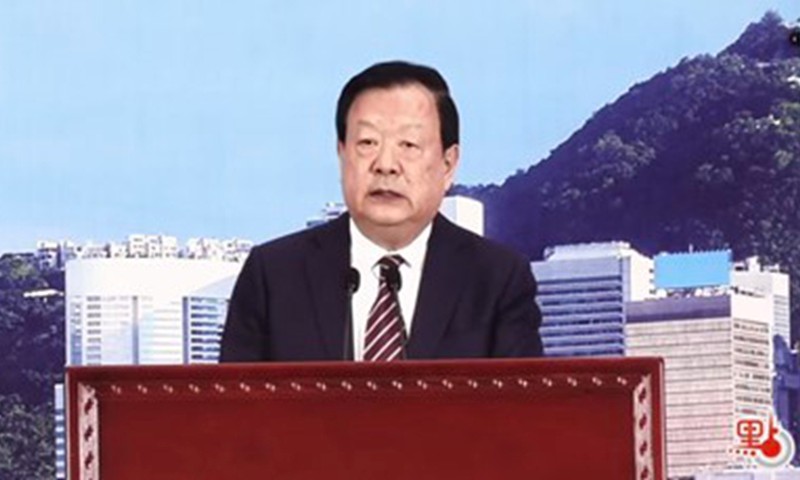
China's Central government official Xia Baolong kicked off a high-profile opening ceremony of an event in Hong Kong Special Administration Region (HKSAR) marking the 10th anniversary of a holistic approach to national security on Monday when the city celebrated the first National Security Education Day after legislation of Article 23.
Xia, head of the Hong Kong and Macao Work Office of the Communist Party of China Central Committee and the Hong Kong and Macao Affairs Office of the State Council, highlighted Hong Kong as the best destination in the world for business, making money and realizing dreams with the national security guarantee firmly in place.
Xia made the remarks via video link, according to the Commissioner's Office of China's Foreign Ministry in the HKSAR.
Xia stated that the unanimous passage of the Safeguarding National Security Ordinance by the Hong Kong Legislative Council on March 23 is a milestone event that has a profound influence on Hong Kong's transition from governance to prosperity and long-term stability.
After the completion of the legislation of Article 23 of the Basic Law, it is believed that investors have cast their votes of confidence in Hong Kong with real investments. This shows that Hong Kong remains the best place in the world in terms of business environment, Xia said.
While stressing that "one country, two systems" is Hong Kong's greatest strength, the Chinese senior official said that Hong Kong's role as an important bridge and window connecting the mainland and the world will become more prominent, emphasizing that the central government fully supports Hong Kong's transition from governance to prosperity, with "more measures to support and benefit Hong Kong to follow."
Hong Kong's prosperity "cannot be talked down by a few articles, noises or jeers," and Hong Kong's development cannot be obstructed by mere obstacles, Xia said.
HKSAR Chief Executive John Lee also addressed the ceremony, asking the city to be vigilant of acts and activities endangering national security.
Hostile forces will continue to attack Hong Kong for political gain, just like a virus that will not disappear simply because Hong Kong has been vaccinated. Hong Kong cannot "forget the pain once the wound heals" and must take preventive measures, Lee said.
Calling the legislation of Article 23 "an efficient vaccine" to safeguard national security, Lee urged that work that lies ahead be improved including better clarifying and interpretating the provision concerning the legislation, strengthening intelligence collection and analysis capabilities to guard against espionage and infiltration and sabotage by foreign forces, and promoting national security education, patriotism education, and Chinese cultural education.
Separately, several attendees of the ceremony reached by the Global Times on Monday expressed their confidence toward the future prosperity of Hong Kong.
Willy Fu, a law professor who is also director of the Chinese Association of Hong Kong & Macao Studies, told the Global Times on Monday that the holistic approach to national security is of great significance steering the "patriots governing Hong Kong" in the right direction, and opening a new chapter in the practice of "one country, two systems" and the development of Hong Kong.
Willy Fu noted that as long as the principle of "patriots governing Hong Kong" is firmly implemented and the path of democratic development in line with the reality of Hong Kong is steadily followed, it will certainly provide solid political support for the governance and prosperity of Hong Kong.
Hong Kong lawmaker Elizabeth Quat Pui-fan, who also attended the ceremony, believes that after the completion of Article 23 legislation, Hong Kong should focus on striving to improve the economy, seeking development and protecting people's livelihood. It should also refute those who smear Hong Kong with the fact that Hong Kong continues to be brilliant.
Elizabeth Quat added that with the ever-changing international situation and hostile forces eyeing us, the risk of jeopardizing national security still exists. She urged the city to stay alert to any uneasy factors and risks, to ensure that riots like those in 2019 are not repeated and to provide a solid guarantee for prosperity.
Louis Chen, a member of the Election Committee and general secretary of the Hong Kong Legal Exchange Foundation, told the Global Times that "as a personal experience of Hong Kong's transformation from chaos to governance and from governance to prosperity, I feel that the security conditions in Hong Kong today have not come easily, and I will be better able to contribute to Hong Kong's development in my own field in the future."
Also, on occasion of celebrating the National Security Education Day on Monday, Chinese Foreign Ministry spokesperson Lin Jian said at a regular press briefing that under the guidance of the holistic approach to national security, China's sovereignty, security and development interests have been comprehensively safeguarded, and the overall social situation has maintained long-term stability. China has become one of the most secure and safest countries in the world.

Editor's Note:
On the occasion of the 45th anniversary of diplomatic relations between Ireland and China, Ireland has been nominated as the Country of Honour at the 4th China International Consumer Products Expo (CICPE), which will be held in South China's Hainan Province from April 13 to 18. The expo is also the first major international expo held in China this year, showcasing China's determination to open up and share opportunities with the world.
Global Times reporter Qi Xijia interviewed Ann Derwin, Ambassador of Ireland to China, to discuss the highlights of Ireland's participation in the CICPE, China's consumption market and opening-up, and the outlook on China-Ireland trade ties.
GT: As Ireland participates as the guest of honor at the CICPE this year, what are your expectations for this event?
Ann Derwin: Expos such as the CICPE are wonderful opportunities to promote Ireland and what it has to offer, and are excellent platforms for Irish companies to introduce themselves to Chinese consumers. Quite a few Irish companies return again and again to these Expos, which signals how valuable and important they consider them to be.
Ireland will have a 500 sqm National Pavilion, showcasing Irish products including food and drink, fashion, education, culture, tourism, and life sciences. Twenty-nine Irish companies, with 50 brands, will participate in the Irish National Pavilion, as will all of Team Ireland in China - the Embassy, Bord Bia, Tourism Ireland, Enterprise Ireland and IDA Ireland. The pavilion itself is based upon Ireland's rich history, with an ancient castle being the highlight. There are over 30,000 castles and castle ruins in the Emerald Isle, with the oldest dating back to the 11th century. Similar to China, Ireland has a history going back 5,000 years ago with Newgrange, one of the most extraordinary passage graves constructed, being older than the Pyramids.
There will be a number of performances throughout our time here of Irish dancing, cookery and whiskey tasting.
The Embassy will also arrange events such as an Irish culture night, a fashion show, a life sciences seminar, a new products launch, a procurement matchmaking event, and a launch ceremony for recently-commenced direct flights from China to Ireland.
GT: How do you view the potential of the Chinese consumption market?
Ann Derwin: China's consumer market is one of the biggest in the world, and somewhere we see a lot of scope for trade and investment. Relations between Ireland and China go from strength to strength, and there is enormous potential for growing our economic and trade relations further. At our Pavilion, you will see an attractive cross-section of promotional units from agriculture and food, fashion, higher education, tourism, life sciences and more. These demonstrate only some of the many areas of possible future cooperation.
There is much investment by Chinese companies in Ireland, and Irish companies in China, and we fully intend to seize all possible opportunities to grow this. Ireland is an especially attractive destination for Chinese companies to invest and do business in - due to our highly-educated English-speaking and dynamic workforce, our strengths in R&D and high-tech industries, our favourable tax system, our membership of the EU and Eurozone and access to a market of over 450 million consumers.
GT: What is your opinion on China's opening-up policies and measures to stabilize foreign investment, and how do you think they will positively impact economic and trade cooperation between the two countries?
Ann Derwin: I believe that China has excellent development prospects, and Ireland hopes to continue to be very much a part of China's trade with the rest of the world. Much of China's new productive forces include those key to the green transition - something where China has a lot to offer the world and where Ireland sees scope for much cooperation.
We anticipate strengthened cooperation in many areas as we celebrate the anniversary of diplomatic relations between Ireland and China this year. Already this year we have had a visit to China by our Minister for Finance, Michael McGrath, to mark St Patrick's Day last month, and of course we very much welcomed the visit to Ireland by Chinese Premier Li Qiang in January. Visits like this offer a valuable opportunity to reconnect, discuss issues of importance and deepen our cooperation in key areas.
GT: This year marks the 45th anniversary of diplomatic relations between the two countries. In which areas do you believe both countries can further strengthen economic and trade cooperation and investment?
Ann Derwin: This year does indeed mark the 45th anniversary of diplomatic relations between China and Ireland. The ties between Ireland and China are strong across many sectors. Our two countries already have strong cooperation in the areas of trade, agriculture, education and culture.
There is enormous potential for further growing economic and trade relations between Ireland and China. For example, many of the areas where cooperation is possible are represented at our Pavilion at the CICPE; life sciences, agriculture and food, fashion, higher education, tourism, and more. These demonstrate only some of the many areas of possible future development.
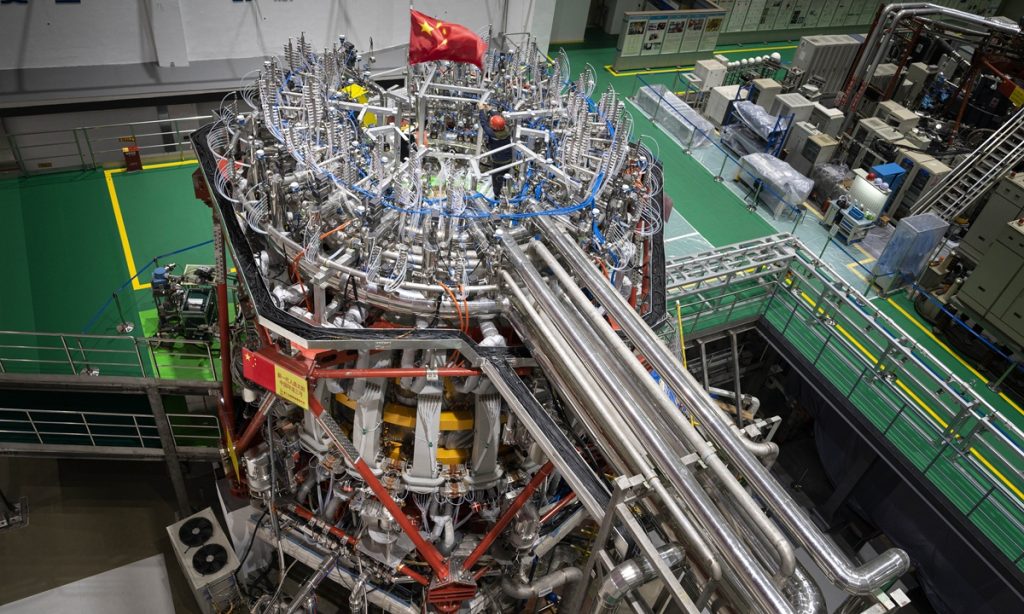
In March, the China National Nuclear Corporation (CNNC) announced it would open 10 of its nuclear technology research facilities and testing platforms, including China's new-generation "artificial sun" Huanliu-3 (HL-3) tokamak, to the world for the first time.
The move is expected to not only further enhance China's influence in nuclear science and technology globally, but also boost international cooperation in dealing with the energy crisis as the issue seemingly grows more and more urgent along with the rapid development of artificial intelligent (AI) in consideration of the technology's staggering energy consumption. Current AI technology could be on track to annually consume as much electricity as the entire country of Ireland (29.3 terawatt-hours per year), according to a report published in October 2023 in Joule magazine.
"Magnetic confinement nuclear fusion is a cutting-edge disruptive technology with outstanding advantages such as abundant resources, environmental friendliness, and inherent safety. It is currently recognized as one of the most important ways to ultimately solve global energy and environmental problems and promote the sustainable development of human society," Liu Zhonghua, deputy director of the Southwestern Institute of Physics (SWIP) under CNNC told the media during a group visit to the institute in late March.
The visit is part of CNNC's series of events to celebrate the 60th anniversary of the success of China's atomic bomb test in 1964 as well as the upcoming 70th anniversary of the establishment of the CNNC in January 2025.
China has set a "three-step" technological roadmap of "thermal neutron reactor, fast reactor, and controllable nuclear fusion reactor" for nuclear energy development. With the existing nuclear science and technology industrial system, it is believed that human beings can use controllable nuclear fusion energy in about 30 years, that is, by the middle of this century, the Global Times learned from CNNC.
The core temperature of the sun is approximately 15 million to 20 million degrees, while the metal materials on Earth will melt at around 1,000 degrees. The goal of China's construction of "artificial sun" is to build a device on Earth that can withstand temperatures of more than one million degrees.
Scientists at the SWIP are sparing no effort to realize the goal step by step. In the 1980s, the first-generation fusion platform HL-1 was built and it was the first national large-scale scientific engineering facility in the field of nuclear fusion in China; in the early 21st century, HL-2 was completed, laying a solid scientific and engineering foundation for the leap from principle exploration to large-scale device experiments in China's nuclear fusion research.
In 2020, the new-generation "artificial sun" HL-3 was successfully designed and built independently, becoming the largest and highest parameter advanced tokamak device in China with a total height of 8.39 meters and a diameter of 8 meters. The plasma ion temperature can reach 150 million C, which is 10 times the temperature of the core of the sun.
In August 2023, HL-3 realized high-confinement mode operation with a plasma current of one million amperes for the first time. The breakthrough puts the operational level of China's magnetic confinement nuclear fusion device at the forefront of the world. It also marks an important step forward in the research of high-performance nuclear fusion plasma operation.
In December 2023, CNNC announced the global opening of HL-3 to invite scientists worldwide to come to China and collaborate toward the shared goal of pursuing "artificial sun energy" after SWIP signed an agreement with the International Thermonuclear Experimental Reactor (ITER) and the development of future fusion reactors. HL-3 since then has become an important supporter to the construction and operation of ITER, the world's largest "artificial sun" project.
The next step of the "artificial sun" project is to gradually transit from the deuterium-tritium combustion experiment stage to the fusion reactor engineering and physical experiment stage, and finally realize the aim of building fusion power stations of demonstration and then the construction of commercial fusion power stations, according to CNNC.
According to Li Bo, a senior engineer at the SWIP, the energy released from the nuclear fusion reaction of one liter of deuterium extracted from seawater is equivalent to that released by 300 liters of gasoline. "To put it simply, if we were to burn coal to fuel a 1-million-kilowatt power plant for a year, it would require around 2 million tons, nearly 33,000 train cars of coal. However, if we use nuclear fusion, only 0.6 tons of materials, equivalent to a small pickup truck, would be sufficient," Li said.
Nuclear fusion energy can also be converted into power through more various methods, Xiao Guoliang, a researcher at the SWIP, told the Global Times. "Besides the traditional steam turbine power generation, the energy carried by the charged particles in the nuclear fusion reactor may also be directly extracted and converted into electricity through specific techniques such as magnetic fluids and plasma waves. With the advancement of technology, the utilization of nuclear fusion energy in the future can be more diverse and efficient," Xiao said.
As a technician at the SWIP, Wang Jin has personally debugged and installed tens of thousands of components on different generations of confinement nuclear fusion devices since 1996.
One of the most memorable things for him was in 2022, when he and other dozens of people fought on site to achieve the first 1 megampere discharge in China as soon as possible against the heat and power limit in summer. After more than a month of arduous preparation, this discharge parameter was successfully achieved.
Wang recalled that, once, he followed an experienced master to conduct a safety inspection of the device. The master walked to a piece of equipment and asked him, "Do you see anything different here?" He looked at that area but did not find anything different.
The master said, "Do you notice the crack in the paint under that screw?" Wang suddenly saw it. Through this incident, he said he felt that doing nuclear fusion work requires great care and patience.
When entering the installation of HL-3, Wang also had his own team of apprentices to lead them to accomplish greater achievements. Wang said, "I need to pass on our spirit. Only in this way can we constantly strive for excellence and do our job well and strong."

German Chancellor Olaf Scholz is scheduled to travel to China in mid-April, accompanied by three federal ministers and a business delegation, media reported. Chinese analysts said Scholz aims to strike a balance in Germany's China policy, ensuring it is not swayed by the hard-line rhetoric of politicians advocating "de-risking."
The German Chancellor's visit is part of a broader series of high-level engagements between China and the EU, and may help foster positive momentum toward consensus-building, the analysts noted.
Scholz reportedly will travel to China for a two-day trip from April 15 to 16. German newspaper Handelsblatt said in a report on April 4 that Scholz will be accompanied by Environment Minister Steffi Lemke, Agriculture Minister Cem Özdemir and Transport Minister Volker Wissing. It noted that "it is unusual" for a Chancellor to be accompanied by several federal ministers on a trip to China and would "otherwise only [take] place as part of government consultations."
Reuters reported on the same day that Germany's top corporate brass, including Roland Busch, chief executive of Siemens, Mercedes-Benz CEO Ola Kaellenius and lab equipment and semiconductor chemicals maker Merck KGaA's CEO Belen Garijo will join Scholz when he visits China. Busch also serves as chair and president of the Asia-Pacific Committee of German Business.
The Chinese side hasn't yet released information on Scholz's visit as of press time on Sunday.
Scholz's upcoming visit to China signifies Germany's willingness to maintain pragmatic cooperation with China. The visit is part of a series of exchanges and communications between China and Germany that have been ongoing since 2022, He Zhigao, a research fellow with the Institute of European Studies from Chinese Academy of Social Sciences, told the Global Times on Sunday.
Scholz was last in China in November 2022. Chinese President Xi Jinping met Scholz in Beijing and the two leaders agreed on enhancing cooperation, maintaining dialogue, and rejecting decoupling and bloc confrontation.
In June 2023, Chinese Premier Li Qiang visited Germany and co-chaired the seventh China-Germany inter-governmental consultation with Scholz.
Sustaining these high-level engagements is crucial in preventing strategic misunderstandings between China and Germany, especially in light of the unveiling of a new strategy by Scholz's three-party coalition in July 2023 that claimed to de-risk Germany's economic relations with China. This strategy, borne out of complex negotiations and compromise among the coalition partners, has sent mixed signals regarding Germany's policy towards China, He said.
Despite calls from some people to decouple from China, Scholz and the majority of the business community remain committed to rejecting "decoupling" rhetoric and instead seek to deepen cooperation, some experts said. Senior German officials' visits to China typically involve high-level business delegations. Scholz's visit, which includes top corporate figures from Germany, underscores the close economic ties between the two countries, analysts said.
On Saturday, China's Ministry of Commerce convened an "invest in China"-themed roundtable meeting in Munich. Representatives of German companies and business groups, including the Chamber of Commerce and Industry for Munich and Upper Bavaria, as well as executives from six large enterprises including BMW and Siemens attended the meeting.
Scholz's visit to China underscores Germany's commitment to preserving the mutual benefits derived from bilateral cooperation. Beyond the automotive industry, there is significant untapped potential for collaboration in sectors such as new energy and biopharmaceuticals, Cui Hongjian, a professor with the Academy of Regional and Global Governance with Beijing Foreign Studies University, told the Global Times on Sunday.
According to Handelsblatt, During Scholz's visit to China, the German government seeks room for cooperation, particularly in the areas of climate and the environment, and in transport policy.
Scholz will also endeavor to seek a political balance in Germany's China policy, preventing it from being kidnapped entirely by negative voices or policies emanating from its foreign ministry and economic ministry, Cui said.
For instance, Germany's Foreign Minister Annalena Baerbock of Green party, who advocates a tough stance on China, has drawn criticism from some Chinese observers for potentially undermining bilateral relations. Similarly, Economy Minister Robert Habeck, also from the Greens, has warned against over-reliance on China.
Concerns raised by some politicians regarding China's alleged overcapacity, unfair competition practices and perceived risks are causing apprehension among small- and medium-sized companies in Germany. If such rhetoric persists, it could potentially harm bilateral relations between China and Germany, said the expert.
While analysts call more efforts within Germany as well as in the EU to push forward pragmatic cooperation despite disputes and negative influences from other countries, they admit that these relations are undergoing a transition to a "new normal" with both sides making adjustments.
The dynamics of China-EU relations have shifted due to evolving geopolitical realities, prompting a restructuring phase. While the EU perceives China as an uncertain factor in terms of security and economic matters, it remains committed to pursuing cooperation and dialogue with China in its own interests, Cui said.
While both positive and negative factors for the China-EU relationship co-exist, Scholz's visit, together with a series of high-level engagements between China and the EU, will play a positive role in pushing the two sides to seek consensus, he said.